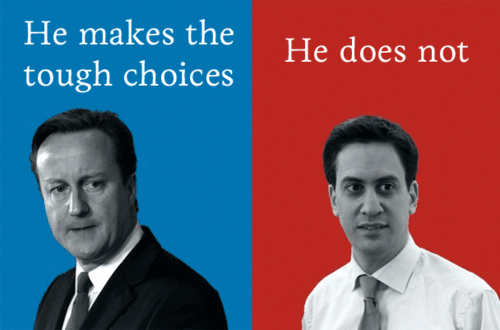
These past few weeks amongst the farming community the weather has been a major topic of conversation. The spring was too dry, and too cold, and in the long run is costing us money.
The cattle should be out on lush pastures - they are not. They are stuck in the shed, tucking into what could well be next winter’s fodder. It is likely we could be light on hay and silage crops this coming season.
The arable, including the Lupins, are not thriving as well as they should which could reduce the yield. As commodity prices are still precariously low we certainly need a bumper crop to make up in quantity what will be lacking in the quality of the grain cheque.
The election is drawing near and by Friday we shall know if, as was said on the Andrew Marr show, it will be David Cameron or Ed Milliband who will quite possibly, become ‘the last Prime Minister of the United Kingdom’.
What a very sorry state affairs our political classes have reduced our once great nation. Great Britain was not so very long ago the most powerful, respected and successful country on earth. Today it is a mere shadow of its former self, a pinnacle of progress, resources, innovation and leadership, a small but perfectly formed country which punched well above its weight.
Why have we come to this juncture where the drive for autonomy and regionalism is driving the United Kingdom asunder? There are probably several reasons including an increasing lack of trust and respect for national politicians. Also a wish to shore up regional communities, not perhaps unconnected to the huge increase in mass immigration which threatens regional identity.
What kind of country we wake up to on Friday morning will be decided by the electorate. It is not only our duty but privilege to vote, we are fortunate to have the freedom to do so. Let us hope that the majority of us do so very wisely.
I shall be voting for the party which will slash bureaucratic interference, red tape and ‘big brother’ breathing down our necks. It is impossible to get anything done without officials, and indeed nuisance neighbours, making life difficult and wasting precious time and limited resources. The UK’s strength and back bone is its small businesses, including farmers, who work hard to run these enterprises, improve the environment, become more efficient and support our local communities. But there are far too many petty minded people, and irrelevant departments always ready to put the proverbial spanner in the works.
Politicians and bureaucrats would do well to remember that they are our servants not our masters. So far, farm land and private businesses have not been nationalised, and until that day comes we should be left to run them without interference. The politician who raises that flag will get my vote.
I have had my first visit to the Amex Community Stadium Falmer. What a very smart and surprisingly elegant building it is. For the record, I did not go to watch a football match. The pity is that it is not a rugby pitch, if it were I could indeed be a regular visitor.
The occasion was a very well attended charity lunch in aid of local charities supporting carers of people with dementia.
We heard a very poignant and moving account of caring for such a relative from Vice Admiral Sir Peter Woodhead, KCB, DL. Sir Peter a former naval officer who became Deputy Supreme Allied Commander Atlantic, served in the Indonesia – Malaysia Confrontation in the 1960s and commanded the frigates HMS Juniper and HMS Rhyll. He also commanded the aircraft carrier HMS Illustrious, and was Deputy Supreme Allied Commander Atlantic in 1991 before retiring in 1994.
This exceptionally capable, heroic and talented man, told us in a very moving speech how his current role as a carer for both his wife Carol and her sister, both of whom are suffering dementia, is his most challenging mission to date.
He spoke poignantly about looking after these two women whom he loves dearly, but are now a mere ‘shell’ of what they once were. They are now totally different people, whom he has watched as their lives and personalities unravel before his eyes.
He tries to keep them stimulated and occupied with music and art, and clearly with much love and kindness. He told us how he feels privileged to be in a position to be able to keep them with him at home. But he recognises that in time he will no longer be able to cope alone, as he will need more help. Eventually the time will come to find suitable accommodation and care as they become increasingly a danger to themselves.
Sir Peter’s vivid account of living with loved ones affected by dementia was deeply moving and left a lasting impression on us all. He paid a warm tribute to the charities and council care services which offer vital support.
Carola Godman Irvine

 RSS Feed
RSS Feed